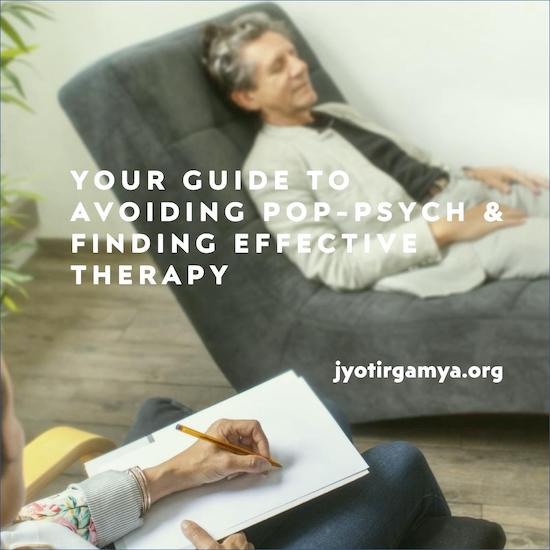Your Guide to Avoiding Pop-Psych & Finding Effective Therapy
Story : Pop-psychologist Dr. Sunshine Harmony
Meet Dr. Sunshine Harmony, her office walls adorned with framed motivational posters featuring puppies frolicking in meadows and inspirational quotes like “Believe in the magic within!” The air hung heavy with the scent of lavender incense and something suspiciously like burnt toast.
I slumped into the beanbag chair, feeling less like a patient and more like a lost sock in a dryer. Dr. Harmony, clad in a tie-dye caftan and sporting a peace sign necklace the size of a dinner plate, beamed at me. “Welcome to the Harmony Zone!” she chirped, strumming a ukulele that magically appeared in her hands. “Now, spill the beans, sunshine! What’s got your inner child feeling grumpy?”

I stammered, trying to explain my crippling fear of public speaking, but Dr. Harmony cut me off. “Aha! A fear dragon! We’ll vanquish it with the power of positive affirmations!” With that, she launched into a sing-song chant: “I am strong, I am brave, I will not be silenced by stage fright!”
I stared, dumbfounded. Was this supposed to be therapy? Did she have a degree in “Good Vibes 101”? Then, I noticed something. A single tear trickled down Dr. Harmony’s cheek, landing with a soft plop on her ukulele string.
“Dr. Harmony, are you…?” I began, concern replacing my initial bewilderment.
She sniffled, wiping her tears with a peace sign-emblazoned handkerchief. “Don’t worry, honey, it’s just… I haven’t spoken in my authentic voice since my pet hamster, Sparky, passed away. But you, with your fear dragon, you reminded me of his courage!”
And there we were, two lost souls in a sea of tie-dye and affirmations, finding solace in the most unexpected way. Maybe Dr. Harmony wasn’t exactly conventional, but beneath the pop-psych facade, there was a genuine heart trying to connect. And maybe, just maybe, her methods, however unorthodox, were exactly what I needed to face my own fear dragon. After all, who knew what magic lurked within a beanbag chair, a ukulele, and a therapist named Dr. Sunshine Harmony?
Introduction
Imagine: Therapist draped in dreamcatchers, spouting affirmations while strumming a ukulele. Sounds…familiar? Enter the world of the “pop psychologist,” where self-help fads reign supreme and therapy resembles a bad sitcom.
While potentially entertaining, these quirky characters offer little in the way of mental health support. Here’s why relying on “pop-psych” can be detrimental, and where to find real help instead:
-
Trendy Twaddle: They chase the latest buzzwords (“inner child,” anyone?), ignoring years of research and evidence-based practices. Think of quick fixes and oversimplified solutions, not the deep exploration needed for lasting change.
-
Ditch the Diplomas: They may sprinkle psychology terms around but often lack formal training and licensure. This means no guarantee of their competence or adherence to ethical guidelines. Scary, right?
-
Harm in Disguise: Their advice, based on shaky foundations, can be misleading or harmful. Imagine someone struggling with depression being told, “Just think happy thoughts!” Not helpful and potentially dangerous.

So, dear reader, when it comes to your mental well-being, ditch the pop-psych charade. Seek qualified professionals – licensed therapists, psychologists, or counselors – who have the training and expertise to guide you on your journey to healing. Remember, your mental health deserves the real deal, not a feel-good fantasy.
Red Flags: Spotting the Pop-Psych Poser
Feeling off-balance? You might be tempted to turn to a therapist. But beware the shiny allure of the “pop-psychologist,” who dishes out advice like candy, often leaving you feeling worse, not better. Here’s how to sniff them out:
Misinformed Approaches:
Have you ever heard “just think happy thoughts” for depression? Yeah, it’s not helpful. Pop psychologists love these fad fixes, throwing around trendy terms like they’re confetti, but forget years of research. Imagine treating a broken leg with air guitar – that’s what pop-psych feels like.
They might even suggest avocado toast cures anxiety (spoiler alert: it doesn’t!). Remember that one-size-fits-all solutions rarely fit anyone. It’s like selling magic beans for your brain – tempting but ultimately useless.
And forget about evidence-based practices. They might tell you your horoscope holds the key to happiness. Sounds fun, but like relying on a coin toss for life decisions, not precisely reliable, right?
So, next time you see a therapist quoting Freud while juggling crystals, run! Seek real help from qualified professionals who use science, not just feel-good fluff. Your mental health deserves better than a pop-psych parade.
Danger Zone: Dodging Unethical Pop-Psych
So you dodged the fad-happy therapist. Congratulations! But the journey’s not over. Watch out for these red flags that scream “unethical pop-psych”:
Blaming Game Gone Wild: Ever feel like your therapist blames your problems on everything under the sun, from your childhood goldfish to your choice of socks? Run! Pop-psychologists love playing the blame game, making you feel small and judged. Imagine them saying, “Your social anxiety is all because you named your dog Mr. Grumpy!” Absurd, right?
Boundaries Blurred Beyond Belief: Therapy should be a safe space, not a happy hour with your therapist. Watch out for those who cross lines, offering to “help” with personal problems outside of sessions (think grabbing drinks or venting about their own life). Unprofessional and risky, like sharing your deepest secrets with a chatty barber!
Qualifications: A Mystery: Does your therapist proudly display a degree in “YouTube Therapy”? Big red flag! Actual therapists have legit qualifications, with licenses and training they’re happy to share. Don’t be afraid to ask for details – it’s your mental health, not a magic show!
Feedback? Not Today!: Therapy is a two-way street. If your therapist shuts down questions or feedback, like a fortune teller offended by doubt, be wary. You deserve open communication and a collaborative approach, not blind trust in someone who might be more interested in performing than helping.
Remember, a good therapist empowers, not belittles. Listen to your gut, and don’t hesitate to seek a professional who respects your boundaries, uses proven methods, and genuinely cares about your well-being. Your mental health deserves the real deal, not a sketchy sideshow act.
Finding Your Flavor: The Perfect Therapy Match
Feeling overwhelmed by therapy options? Imagine therapy like an ice cream parlor – different flavors (approaches) for different preferences. We got CBT (like a chocolate chip – classic and reliable), mindfulness (think calming lavender), and even EMDR (imagine a wild, fruity sorbet – intense but effective!).
But remember, unlicensed therapists are like broken magic 8-balls – good for laughs, not real guidance. Seek licensed professionals who spent years learning the scoop on mental health. They’ll proudly display degrees and licenses, not hidden like sprinkles in the back.
Before diving in, ask questions! It’s your mental sundae, after all. Wonder if they believe cat videos heal anxiety? (Totally a legit question, by the way.) Don’t be shy! A good therapist welcomes curiosity, unlike a grumpy ice cream vendor scooping frowns.
And finally, check their credentials! No Yelp review for “Dr. Feelgood”? I suggest skipping that cone. Look for licensing boards and ethics complaints (hopefully none!), and even research their approach. It’s like reading the ingredients on your ice cream – gotta know what you’re getting!
Remember, finding the right therapist is a personal journey. Don’t settle for sprinkles when you deserve a whole waffle cone of support. With some research and open communication, you’ll find the perfect flavor to help you thrive!
Beyond the Hype: Ditching Stereotypes and Sharing Smarties
So, we’ve disarmed the pop-psych parade and found your therapy flavor. But hold on, there’s more! Let’s bust some myths and become mental health champions:
Rumor Mill Madness: Remember that high school reunion where gossip flew faster than free punch? Pop-psychology does the same thing with mental health. They spread rumors like “introverts are all shy” or “anxiety is just overthinking.” Not cool! Genuine mental health is complex, not a one-size-fits-all rumor.
Dr. Google Says What?: Feeling stressed? Googling symptoms might seem smart, but let’s be honest, it’s like asking a psychic for medical advice. Not reliable, right? Stick to credible sources, like mental health organizations or licensed professionals.
Aunt Mildred’s Mental Health Tips: We all love our aunts, but maybe skip their Facebook memes for mental health advice. Sharing unverified information can be harmful. Instead, let’s be responsible content creators. Share accurate info, double-check sources, and remember: it’s not about likes; it’s about helping others.
Remember, fighting pop-psych stereotypes and promoting responsible information is like sharing a bag of Smarties – it’s small, colorful, and makes the world sweeter. Be a mental health champion, spread the facts, and ditch the harmful hype! You’ve got the power to make a difference, one informed post at a time.
The End (But Really, the Beginning)…of Your Mental Health Journey!
Whew! We dodged the pop-psych parade, found your therapy flavor, and became mental health champions. High fives all around! But remember, this journey’s just starting. Don’t settle for therapy that feels like a bad sitcom, where you’re the punchline of someone else’s quirky advice. (Think crystals for trauma – yikes!).
Trust your gut. If something feels off, run! It’s your mental health, not a game of tag with questionable therapists. And remember, seeking help is a sign of strength, not weakness. So, if red flags pop up, don’t hesitate to find a new therapist who fits you better.
Need extra support? No worries! Here are some resources (with a sprinkle of humor, of course):
- For emergency therapy puns: Dial 1-800-LAUGH-IT-OUT (it’s not real, but hey, laughter is good medicine!)
- For credible mental health info, Check out websites of organizations like NAMI or APA. They’re the Wikipedia of mental health but way more reliable.
- To connect with others, Join online communities or support groups. Sharing experiences can be super helpful, and who knows, you might even make some new friends (the non-crystal-toting kind, of course).
Remember, taking care of your mental health is an investment in yourself. So ditch the pop-psych nonsense, embrace the real deal, and keep thriving! You’ve got this!
Recommended Read
-
Your Guide to Avoiding Pop-Psych & Finding Effective Therapy
-
Unlocking Emotional Flexibility: A Path to Resilience and Well-being
-
Understanding and Managing Anger: Strategies and Tips from Experts
Want to stay connected? Here’s our twitter.
Or subscribe to our monthly newsletter containing tools for body, mind, and goal.